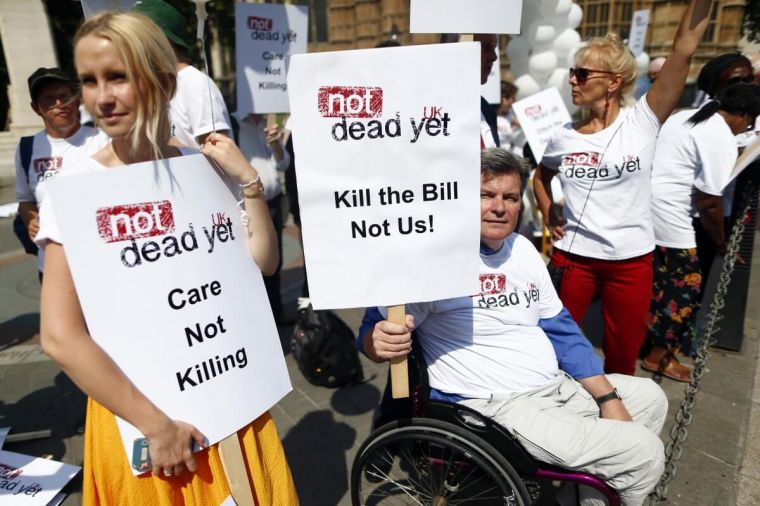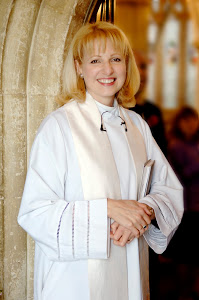Senior Anglican priest slams opposition to assisted dying as 'pure fatalism and superstition'
A senior Anglican priest has spoken out in favour of assisted dying, dismissing as 'pure fatalism and superstition' the notion that 'the time of someone's death is purely God's business'.
Canon Rosie Harper, the chaplain to the Bishop of Buckingham and a member of the Church's General Synod, has written a controversial post on the ViaMedia blog urging acceptance of the right to die.

In it, she writes: 'Don't tell me that the time of someone's death is purely God's business. That at the moment when all a human soul wants is for it to end, God stands at the end of the bed and says: "No my child, it is my will that you suffer just a few more days." That is pure fatalism and superstition.'
She adds: 'When our lives are nearing the end there are now many societies where that degree of both choice and responsibility remains. That is not the case in the UK.
'Just when you might think we need our freedom the most the medical profession (by law) take it away from us. Just when you might think that God would most honour the freedom he has given us the Christian community take it away from us.'
In the post, Canon Harper reflects that she is writing on the subject for both 'personal and professional' reasons, reflecting on the deaths of her Swiss uncles, one from an aggressive brain tumour.
'It is professional because in the parish where I work there are a lot of funerals. Mostly the bereaved tell me of the immense kindness of all around; family and friends, doctors and nurses. They tell of the shock of sudden unexpected death and also the oblique conversations about the use of morphine. They also sometimes tell me of bad deaths. Deaths where there is no way of giving the dying person their final wish: "please, dear God, please help me to die."'

Invoking the Christian concept of free will, Canon Harper goes on: 'Even people who would use language such as "God has a plan for your life" don't actually mean that everything that happens to them from birth to death is controlled. Of course not. We rejoice in our free will, even in the knowledge that we risk miss-using it. That's part of the deal. Our conception is a risk. We may be born to loving parents, or our mother might have been kidnapped and raped. The will of God? Throughout our lives we make choices and many of them are life and death choices. To smoke or drink or over eat. To enjoy extreme sports, to ride a motorbike. For all those things we choose and we also take responsibility.'
Assisted dying remains illegal in the UK. The Church of England continues officially to support the current law, though some Church figures, including the former Archbishop of Canterbury George Carey, have said they are in favour. The Catholic Church in England and Wales and around the world is firmly opposed.
In November, a study by the campaign group Dignity in Dying said that thousands of terminally ill people who want to travel abroad to end their life in specialist clinics cannot afford to doing so, leaving them to face often 'painful and traumatic deaths at home'.
The study found that while more than half of Britons would consider travelling abroad to countries such as Switzerland for an assisted death, only a quarter said they could afford the cost, averaging £10,000.











